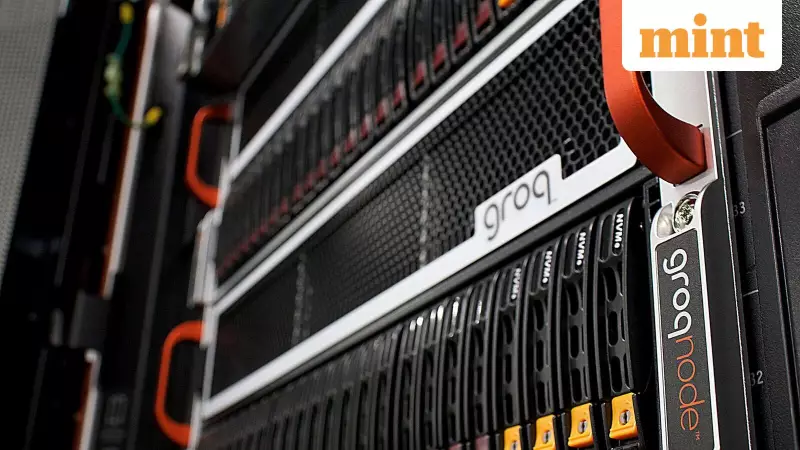
The race to create Silicon Valley's first trillion-dollar private company is fundamentally transforming how venture capital operates, creating both unprecedented opportunities and significant risks in the world of startup investing.
The AI Boom Fuels Unprecedented Valuations
When Nvidia first achieved trillion-dollar status two years ago, many investors expressed concerns about overvaluation. However, those who invested in the AI chipmaker at that time have since quadrupled their money. The company reached a historic milestone on July 9th, becoming the first ever to hit a $4 trillion market valuation.
This spectacular performance has generated considerable envy among Silicon Valley's venture capitalists. The trend extends beyond Nvidia, with cloud computing provider CoreWeave seeing its market value surge by over 300% since its March listing. Flush with capital and energized by the artificial intelligence revolution, VCs are now holding onto promising startups longer, hoping to ride their valuations to unprecedented heights.
From VC Winter to AI Frenzy
The current environment marks a dramatic reversal from 2023, when the venture capital industry was experiencing a significant downturn. During the pandemic-era funding boom of 2021, America witnessed the creation of 344 unicorns - private companies valued at over $1 billion. By 2023, that number had plummeted to just 45 as rising interest rates brought the industry back to reality.
Many valuations from that period proved as mythical as the creatures they were named after, leaving behind so-called zombie unicorns that continue to haunt Silicon Valley. However, generative AI has ignited a new frenzy that some observers consider even more intense than the previous boom.
According to data from PitchBook, almost two-thirds of all VC dollars invested in America during the first half of this year went to AI companies. The landscape has evolved beyond unicorns to include decacorns (worth over $10 billion) and hectocorns ($100 billion-plus). OpenAI, creator of ChatGPT, recently achieved a $300 billion valuation.
Transforming Venture Capital Models
The abundance of capital is driving these rich valuations. Assets managed by American VC firms approached $1.3 trillion last year, more than triple the 2015 level. Money remaining from the pandemic-era fundraising boom has been rapidly redirected to AI startups, while new foreign investors like Middle Eastern sovereign-wealth funds have entered the scene with substantial capital.
VCs are allocating a much larger portion of their expanding resources to mature startups rather than early-stage companies. In the first half of 2025, these established startups accounted for 78% of the value of VC deals, up from 59% during the same period last year.
Japanese tech investor SoftBank exemplifies this trend with unprecedented spending. CEO Masayoshi Son has committed to investing $32 billion into OpenAI by year-end - exceeding the amount raised by any initial public offering in history.
New Investment Strategies Emerge
The extended private status of startups reflects both founder preferences to avoid public market scrutiny and VC desires to capture more valuation growth. This shift requires new approaches to liquidity since traditional VC models require exiting investments within years to return proceeds to investors.
Secondary tender offers have become one popular solution, allowing early backers and employees to sell shares without waiting for IPOs or funding rounds. PitchBook data shows these transactions reached approximately $60 billion in the first quarter of 2025, up from $50 billion in the previous quarter.
Permanent capital represents another innovation. Sequoia Capital declared the traditional ten-year fund obsolete in 2021, replacing it with the Sequoia Capital Fund that combines investments in private startups with liquid stakes in public companies. Other firms like Lightspeed Venture Partners have turned to continuation funds that bring fresh capital to maintain startup holdings.
Risks and Rewards in the Trillion-Dollar Chase
The industry transformation carries substantial risks. Writing increasingly large checks for companies yet to demonstrate profitability, while holding them longer in hopes they eventually succeed, raises the potential for enormous losses. The stratospheric valuations of today's buzzy startups could prove as overinflated as the zombie unicorns from previous years.
Despite these risks, the prospect of trillion-dollar rewards makes restraint difficult. As Vince Hankes of Thrive Capital - which has invested over $1 billion in OpenAI - noted, even within his firm's relatively small portfolio, there could be multiple startups eventually worth $1 trillion.
The venture capital landscape is being reshaped by this high-stakes pursuit, with both established giants and nimble newcomers developing innovative strategies to capture what could become the most valuable private companies in history.






